Filing Instructions For The 2015 Mlr Reporting Year - Centers For Medicare & Medicaid Services (Cms) Page 7
ADVERTISEMENT
Deferred Business
If, for any aggregation as defined in 45 CFR §158.121, 50% or more of the total earned premium
for an MLR reporting year is attributable to newly issued policies with less than 12 months of
experience in that MLR reporting year, then the experience of these policies may be deferred, at
the option of the issuer. PLEASE NOTE: for the 2015 MLR reporting year, CMS will not initiate
an enforcement action against an issuer who elects to defer reporting of experience of newly
issued policies with 12 months or less of experience in 2015 (rather than only policies with less
than 12 months of experience), if 50% or more of the issuer’s total earned premium for 2015 is
attributable to such policies. If an issuer defers the reporting of newer business as provided in this
paragraph, then the experience of such policies must be excluded from the MLR reporting year in
which it occurred and must be added to the experience reported in the following MLR reporting
year.
Allocation of Expenses
Each expense must be reported under only one type of expense, unless a portion of the expense fits
under the definition of or criteria for one type of expense and the remainder fits into a different
type of expense, in which case the expense must be pro-rated between the two (or more) types of
expenses. Expenditures that benefit more than one affiliate may be allocated, on a pro rata basis,
between the affiliates that benefit from these expenditures. Expenditures that benefit all lines of
business or products, including but not limited to those that are for or benefit self-funded plans,
must be reported on a pro rata basis.
Aggregation of Experience
An issuer’s experience, aggregated by individual, small group, and large group markets, with
respect to each policy must be included on the report submitted with respect to the State where the
policy was issued, except as specified below.
Group Coverage in Multiple States:
Group coverage issued by a single issuer to an employer that covers employees in multiple States
must be reported for the State where the contract is sitused. Situs of the contract is the jurisdiction
in which the contract is issued or delivered, as stated in the contract.
Dual-Contract Group Health Coverage:
If an issuer has a group health plan which provides only in-network coverage and an affiliate
issuer provides only out-of-network coverage solely for the purpose of providing a group health
plan that offers both in-network and out-of-network benefits, the issuer may choose to treat the
out-of-network experience of the affiliate that provides the out-of-network coverage as if it were
related to the contract providing the in-network coverage. If an issuer chooses this method of
aggregation, it must do so for a minimum of three consecutive reporting years and the affiliate that
provides the out-of-network coverage must not report this experience. After an issuer applies this
method for the initial three consecutive reporting years, the issuer may either continue to apply
this method for any number of additional consecutive reporting years, or may choose to
discontinue applying this method.
Individual Business through an Association:
For individual business sold through an association, the issuer shall include the experience in the
State report for the issue State of the certificate of coverage.
Employer Business through Group Trust, Association, or MEWA:
6
ADVERTISEMENT
0 votes
Related Articles
Related forms
Related Categories
Parent category: Medical
 1
1 2
2 3
3 4
4 5
5 6
6 7
7 8
8 9
9 10
10 11
11 12
12 13
13 14
14 15
15 16
16 17
17 18
18 19
19 20
20 21
21 22
22 23
23 24
24 25
25 26
26 27
27 28
28 29
29 30
30 31
31 32
32 33
33 34
34 35
35 36
36 37
37 38
38 39
39 40
40 41
41 42
42 43
43 44
44 45
45 46
46 47
47 48
48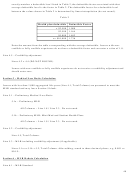 49
49 50
50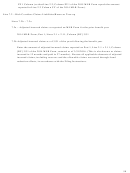 51
51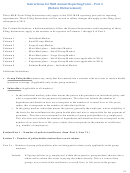 52
52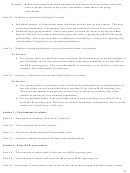 53
53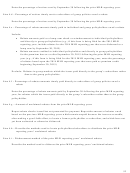 54
54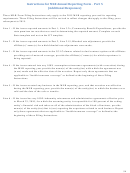 55
55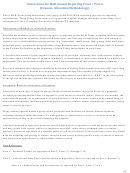 56
56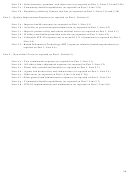 57
57








